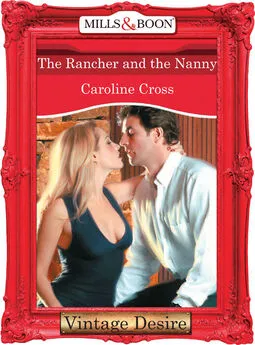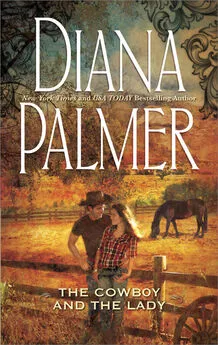John Creasey - The Toff and The Lady
- Название:The Toff and The Lady
- Автор:
- Жанр:
- Издательство:неизвестно
- Год:неизвестен
- ISBN:нет данных
- Рейтинг:
- Избранное:Добавить в избранное
-
Отзывы:
-
Ваша оценка:
John Creasey - The Toff and The Lady краткое содержание
The Toff and The Lady - читать онлайн бесплатно полную версию (весь текст целиком)
Интервал:
Закладка:
“And what happened when you got there?” demanded Grice.
She gulped. “I—they—I mean Malloy, he said I was to— to go to Mr. Rollison’s flat!” She flung the words out defiantly, and then added, tearfully: “He wanted me to get the countess away; he said it was important, he wanted me to distract Mr. Rollison’s attention, he said he could look after the rest. And I was to get a key of the flat if I could—I don’t know what he thought I was!”
“Obviously he thought you were a friend of Mr. Rollison,” said Grice.
She simpered. “Well. I am , aren’t I?”
Grice kept a straight face with difficulty and Rollison agreed bravely that she was. This gave the girl more confidence, and Grice handled her well. The dress she was wearing might have come straight from a Paris salon, her shoes and gloves were of first quality, and her hair looked as if it had been dressed by an artist only that morning.
Grice finished his questioning at last, and Janice asked in her most little girl voice:
“Have I satisfied you, Superintendent? Please say that I have. I wouldn’t do anything that Malloy wanted me to if it would hurt a fly, I wouldn’t reelly.”
Grice’s voice hardened.
“You were very wrong not to tell the police your fiance’s address, Miss Armitage—had you given us the information earlier, a great deal of trouble might have been prevented.”
“Well” —she paused— “you couldn’t expect—I mean, you can’t expect a man to know how I feel about Marcus, can you?” I
Grice gave her up, but still spoke with a severe voice.
“I must warn you, Miss Armitage, that if you get any further information about any of them—Marcus Shayle, Malloy or the man called Pomeroy, you must tell us immediately. If you have a letter or a postcard, with an address or without, you must not lose a moment in telling us. If you do, you may cause even mora serious trouble for your fiance.”
“Would I?” asked Janice.
“You see,” said Grice, carefully, “it is by no means certain that Marcus Shayle is acting like this because he wants to. The others probably have some influence over him. It will be for his own good if he is found again. Do you understand me?”
There was a calculating look in her eyes.
“Yes,” she said, “I didn’t think of that before, I am sorry. If I have only a teeny-weeny note, or even a telephone call I will tell you right away, that’s a promise. Can I go now?”
“I will send a man home with you,” said Grice, pressing a bell. When a policeman in uniform entered, he told the man to take Janice to the waiting-room, and arrange for her to be taken home.
“Right-ho, sir. Come along, Miss.” The constable took Janice out, not before she had looked at Rollison beneath her lashes with a glance which she doubtless thought was alluring.
When the door closed behind her, both of them laughed.
“You’ve an impressive circle of friends,” said Grice. “Her type is as common as mud. She knew something of what was going on, and provided she came out of it well, she didn’t greatly mind. Shayle must be fond of her, or he wouldn’t lavish so much money on her.”
“Or,” said Rollison.
Grice frowned. “Oh what?”
“Or else he felt it wise to lavish clothes on her to make Sure that she kept her mouth shut,” said Rollison. “Perhaps there is more than fluff in that funny little head of hers. That’s only a suggestion, of course, and I may be quite wrong.” He offered cigarettes, and when Grice refused, lit one himself. “You’ll have her watched, won’t you?”
“Of course,” said Grice. He sat back and smiled, although his expression was grave and he seemed concerned. “Well, what about the Countess?”
“I’m a long way from convinced that she is a countess, or even if she is, that she’s half as bad as she’s been painted,” said Rollison.
“It isn’t like you to be so biased.”
“I’m judging from what I know of her. Bill, you started to base your case against her on the fact that she did not recognize certain tunes when they were played to her at the nursing home. That’s pretty thin.”
“It was an idea, no more,” said Grice, “and the rest developed directly from that. I’ve had a report in from the New York police,” he added, and took a telegram from his desk. “Read it, it might help to convince you.”
There was confirmation of the amount of money that had been raised by Countess Lila Hollern and of the fact that it was in her bank, under her name, and without a joint signature. There was also the admission that well-known members of New York banking circles and society had vouched for her, but a comment suggested that it might have been because of her looks. There was no doubt at all that the New York police considered that she had defrauded the public. The cable ended with the statement that action was being considered in New York, and the hope that if it materialized, Scotland Yard would be able to arrange for the countess’s extradition.
Rollison put down the cablegram and said slowly:
“Will you oblige them?”
“Not on the present evidence,” said Grice. “In any case I doubt whether the Home Office would agree—we’ve plenty to discuss with the lady over here!”
“When are you going to start?”
“When I know a little more,” said Grice. “Now, you’ve something on your mind—what is it?”
“Until she heard it in my flat, I don’t believe that she had the Yugo-Slav National Anthem played to her,” said Rollison, quietly. “I don’t believe the matron carried out the instructions and I believe she gave a false report.”
“You’re dreaming this up,” said Grice.
“Well, will you look into it?” asked Rollison.
After a pause, Grice said: “All right.”
“Don’t forget the police have made some errors in this case,” Rollison said. “First they let Lady Lost go from the nursing home”
“I’ve learned, since,” said Grice. “A visitor in a fur coat went in—and, naturally, when my men saw a fur coat come out, they had no suspicions. Later they saw another fur coat, asked the wearer questions, and then realized they had been tricked.”
The telephone rang as he finished.
“Grice speaking,” said Grice, into it. Rollison watched and saw his expression change, the skin grew tauter over his nose and cheeks, and while still listening he pressed a bell-push on the desk. At last he said: “Yes, stay there, touch nothing and move nothing, and allow no one else in the room. . . . If necessary lock the door, I will take the responsibility.” He replaced the receiver after a terse good-bye, and looked grimly at Rollison as a constable answered his summons.
Grice said: “Ask Chief Inspector Bernay to come in at once, then find out whether Sergeant Gorring is free. Tell the sergeant, if you find him, that we shall want everything for a case of homicide. He is to telephone Dr. Gray. Failing Sergeant Gorring, get Sergeant Anderson.”
“Yes, sir,” said the constable, as if Grice had asked for a sandwich, and turned and went out.
“Homicide,” murmured Rollison.
“If Phyllis Armitage told me the truth just now, murder,” said Grice, getting up. “I must pop upstairs and have a word with the Assistant Commissioner before I go. Are you coming?”
“Where?” asked Rollison.
“To the Lawley Nursing Home,” said Grice. “Miss Armitage went to see the matron and found that she has been killed.” He paused by the door, looked at Rollison thoughtfully, and then said with feeling: “There are times when you’re so uncanny that you scare me.”
Rollison said: “Uncanny? I simply look at the facts. I’ll see you there later,” he added, picking up his hat. “I’m going to Barrington House first.”
CHAPTER SIXTEEN
TALK WITH GWENDOLINE
ROLLISON took the lift to the ground floor and hurried towards the exit, then doubled across the courtyard, to the surprise of several policemen. He turned towards Parliament Square, beckoned a taxi which was approaching, and when the cab slowed up, he said: “Wait for me outside the telephone kiosk round the corner—we’re going to Park Lane.”
“Okay,” said the driver.
There was no delay when Rollison telephoned Jolly.
“Is there anything to report there?”
“No, sir. Our guest went for a short walk with her maid and they are now both back at the flat.”
“Good. Jolly, go to the Lawley Nursing Home quickly. Don’t let the police know that I sent you, if you should be seen by them—say you were curious about the matron, or something like that. Miss Phyllis Armitage is there—presumably in the matron’s office. She has had instructions to keep everyone out, so go to the window and try to talk to her. Get her story if it’s possible, and then report to the flat. If I’m not there, telephone Barrington House.”
“Very good, sir,” said Jolly.
“Get a move on, Jolly!” Rollison rang off and hurried to the taxi. There was no sign of Grice’s car as he passed the Yard. He sat back, lighting a cigarette. There was surely no further doubt that the matron had played a part in what had happened earlier. The trouble was to find out how Shayle, Pomeroy or Malloy had known that the Lady of Lost Memory would be put under her charge.
“Wait, will you?” he asked the taxi driver when they drew up outside Barrington House. “I may be half an hour.” He was already walking towards the front door as he finished speaking, and noticed with some surprise that the front gates were closed, preventing the taxi from going right in.
The footman, Farrow, opened the door.
“Good-afternoon, sir.”
“Good-afternoon,” said Rollison. “Is Miss Gwendoline in?”
“No, sir, she is not at home.” Farrow looked as if he were glad to say so.
“Mrs. Barrington-Ley?” asked Rollison.
“I am sorry, sir, but Madam is unwell, and unable to receive anyone.”
“Take her my card,” Rollison said, taking one from his pocket.
“I am sorry, sir,” said the footman, firmly. “The doctor was most emphatic—Madam is not to be disturbed. Madam was taken ill early this morning.”
Is she unconscious?” demanded Rollison.
“I have no information, sir, beyond my instructions.”
“When did Miss Gwendoline go out?”
“I have no idea, sir.”
As he spoke the door of a room off the hall opened and a maid appeared. Before the door closed Rollison heard Gwendoline’s voice:
“Tell him that he must come within an hour.”
“Very good, Miss,” said the maid.
Rollison strode past the footman, smiled at the maid, and reached the door. Farrow came after him, and when Rollison turned suddenly, he saw the man’s face set in alarm. The man actually stretched out an arm to stop him, but drew back when Rollison said sharply:
“Don’t ask for trouble!”
He was uneasily aware of the man’s tense gaze when he went into the room. But for the urgency of seeing Gwendoline, he would have paid Farrow more attention, for he had an impression that the man wanted to speak.
The morning-room was bright and sunny, with books in the corners and a small writing-desk, small easy chairs dotted about, and a low-sprung settee on which Gwendoline was sitting. She sat up abruptly when she saw him, and showed no sign of pleasure.
“I told Farrow that I was not at home.”
“And Farrow told me,” said Rollison. He closed the door, walked across and stared at Gwendoline. She looked as if die had had no sleep the previous night. Her eyes were bright and glassy, and her face was pale, the cheeks puffy beneath her eyes—obviously she had been crying. Her neck was heavily bandaged. Her hair was in disarray, and her tweed suit was crumpled. Cigarette ash covered the lapels and her skirt, and she looted almost disreputable.
Читать дальшеИнтервал:
Закладка:










